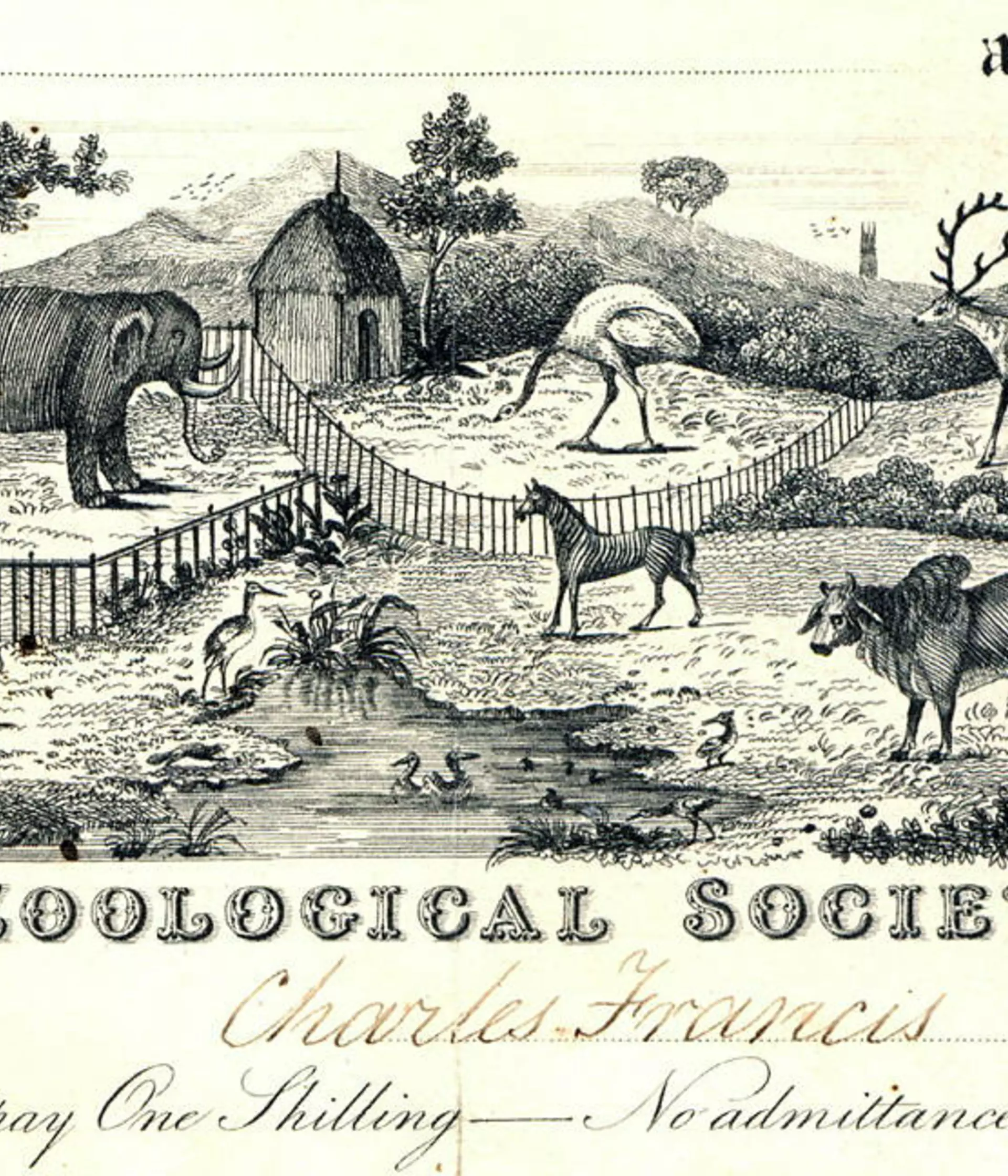Making history for wildlife
We’ve been building stronger connections to wildlife for 200 years. Change-makers from the start, from Darwin to Attenborough, we’ve always broken new ground in conservation science and been passionate advocates for wildlife.
By taking bold steps to pioneer new architecture, we've created unique spaces of wonder and learning, advancing knowledge to better protect wildlife and sparking a lifelong love of animals. Whether through popularising the name "Aquarium", inspiring Winnie the Pooh or causing Londoner's to become obsessed with giraffes.
Time Traveller's Guide to London Zoo
Celebrating our history
Journey back through the most iconic moments in our two-hundred years of science, from our trailblazing first female curator to wildlife conservation break-throughs.
The original scientific Zoo
Proudly breaking down barriers and taking bold steps, we’re an organisation of firsts. The first female fellow of a learned society was one of our founding members; and many other women at ZSL have broken glass ceilings.
In wildlife conservation we pioneered the first zoological collection for science; and we created the first red list for critically endangered species; we were first to document new species in the wild from the Okapi to the horned frog, and we’ve spearheaded international breeding programmes to protect species and reintroduce them to the wild; we’ve harnessed breakthrough innovations to improve animal monitoring; and state of the art technologies to detect and prevent wildlife threats from new diseases to illegal poaching.
This pioneering spirit and desire to make wildlife matter in the world still drives us today, as we embrace new techniques and technologies to maximise our impact, while inspiring collective action to shape a healthier and fairer future for us all. We won’t stop until that future is here
For two hundred years our animals have been capturing the imagination of millions of visitors.
World's first aquarium
Change-makers from the start
We were home to the world's first public aquarium in May 1853. Our 'Fish House' was revolutionary for its time, the possibility of making tanks from large sheets of plate glass enabled visitors to have an underwater view of the life in tanks.
